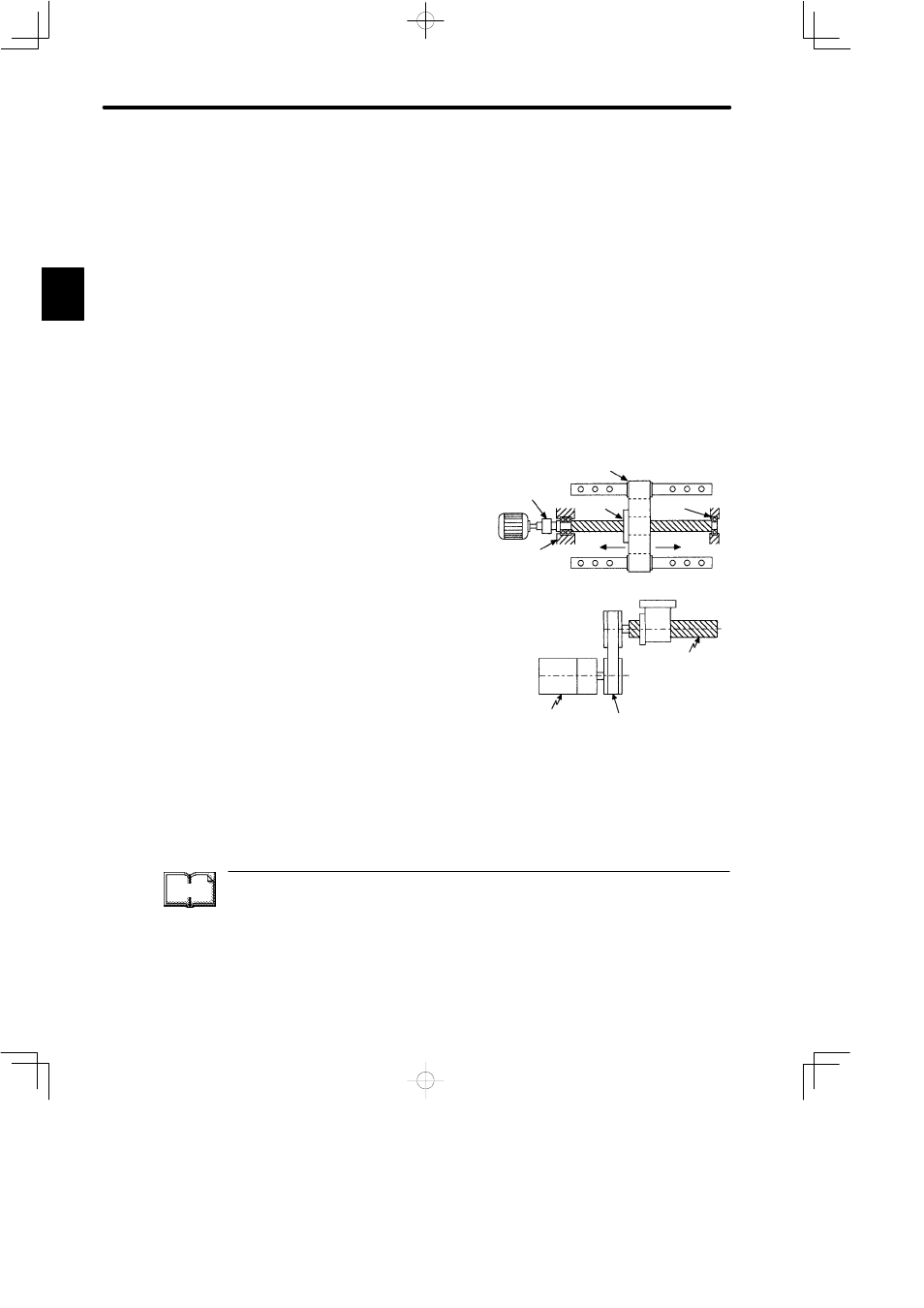Yaskawa DR2 Sigma Servo User Manual
Page 20

FOR FIRST-TIME USERS OF AC SERVOS
1.1.2 Servo Configuration cont.
6
Servo components (1) to (5) are outlined below:
(1) Controlled system
In the previous figure, the controlled system is a movable table for which the position
or speed is controlled. The movable table is driven by a ball screw and is connected to
the servomotor via gears.
So, the drive system consists of:
Gears + Ball Screw
This drive system is most commonly used because the power transmission ratio
(gear ratio) can be freely set to ensure high positioning accuracy. However, play in the
gears must be minimized.
The following drive system is also possible when the controlled system is a movable
table:
Coupling + Ball Screw
When the power transmission ratio is 1 :
1, a coupling is useful because it has no
play.
This drive system is widely used for ma-
chining tools.
Timing Belt + Trapezoidal Screw Thread
A timing belt is a coupling device that allows
the power transmission ratio to be set freely
and that has no play.
A trapezoidal screw thread does not provide
excellent positioning accuracy, so can be
treated as a minor coupling device.
To develop an excellent servo system, it is important to select a rigid drive system that
has no play.
Configure the controlled system by using an appropriate drive system for the control
purpose.
TERMS
Drive system
Also called a drive mechanism.
A drive system connects an actuator (such as a servomotor) to a controlled system and
serves as a mechanical control component that transmits torque to the controlled system,
orientates the controlled system, and converts motion from rotation to linear motion and
vice versa.
1
Coupling
Rolling-contact
guide
Ball screw
Rolling-contact
bearing
Housing
Trapezoidal
screw
thread
Servomotor
Timing belt